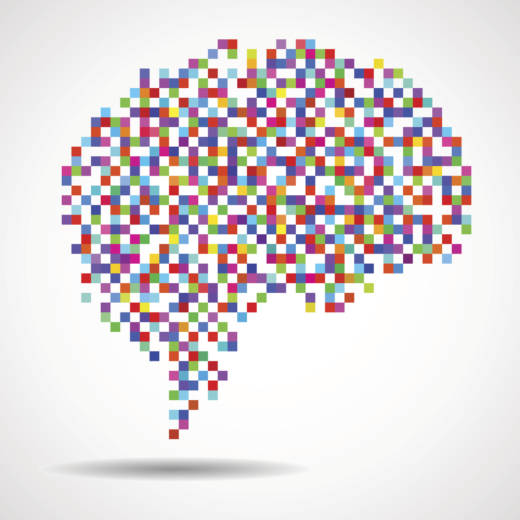To illustrate the challenge facing education, he pointed to parallel challenges within medicine.
First, both use poor initial assessments, he said. Few doctors are utilizing brain scans, instead relying on outdated paper and pencil tests. “Similarly in education, we don’t have a starting point for understanding from each child’s cognitive abilities.”
Second, both employ poor targeting. In medicine, many pharmaceuticals target broad body systems, requiring doctors and patients to spend a lot of time monitoring and managing the side effects of medication. In education, we hope that “providing information content will develop students’ core abilities, but we don’t precisely target underlying cognitive abilities.”
Third, both systems are largely non-personalized. In medicine, he said, we write prescription dosages based on the outcomes of large studies. And in education, the curriculum rarely focuses on the individual profile of the child. “We are vaguely aiming at personalization [in both fields] but not really getting there.”
Fourth, many practitioners in both fields fall back to a unimodal approach, hoping a “one pill can solve something as complicated as depression or one model of teaching will fit all the students in the classroom.”
And finally, both systems are “open loop”: they have an imprecise, long cycle between the initial intervention and the updated intervention. In medicine, patients might take pills and subjectively monitor effects and side effects. Weeks or months later, based on their reports, their doctor may raise or lower the dosage slightly. Likewise, Gazzaley argued, the exams that students take do not quickly translate into updated methods for improving student understanding. “Open-loop systems are not an effective way to change anything, especially something as complex as the human brain.”
The current system is “not good enough,” said Gazzaley. “We don’t need to throw out what we have, but in order to remedy our cognition crisis, we need a parallel system that is targeted, personalized, multimodal, and closed loop.”
Enter technology. Gazzaley sees technology as both a pervasive challenge to cognition -- taxing our attention and driving us to distraction -- and a potential “game-changing” intervention.
As a neuroscientist, Gazzaley has studied “how our brains intersect with the explosion of devices, programs and software.” He said that 95 percent of people report multitasking with technology every day. This constant drain on our attention affects our cognitive control, or “the mental abilities that enable us to enact our goals.” These abilities include:
- Attention: the ability to direct limited mental resources when and where we need them
- Working memory: the slots available in our short-term memory to problem-solve the task at hand
- Goal management: how and when should we multitask -- or more precisely “task switch” -- knowing that every time our brain has to switch, it taxes our mental resources
The multitasking brain is a “distracted mind,” said Gazzaley, and “cognitive interferences affect sleep, relationships, education, emotion, working memory, decision-making and perception.”
To allow our brains to develop their full potential, “we need to take control over how we use technology,” said Gazzaley. “How do we build stronger brains so that we have less distracted minds?” This can be done by modifying our behavior, but he also believes that technology itself can play a role in enhancing cognition.
He advocates creating high-tech, closed-loop intervention systems that assess students’ cognitive abilities and target their specific needs in a personalized way. In a closed-loop system, he explained, you intervene in some way and record the impact of that intervention. You then use those data to refine that intervention. “You record, you refine, you apply ... over and over again, at each pass becoming more targeted at improving your outcome.”
This is part of the work he is engaged in at Neuroscape, a center at the University of California, San Francisco he co-founded, where they are developing and testing several closed-loop technologies designed to enhance cognition.
“Will these developments enhance what makes us human or degrade us?” Gazzaley asked. “This should be part of our development process. We need to think about how technology interacts with us as human beings.”


